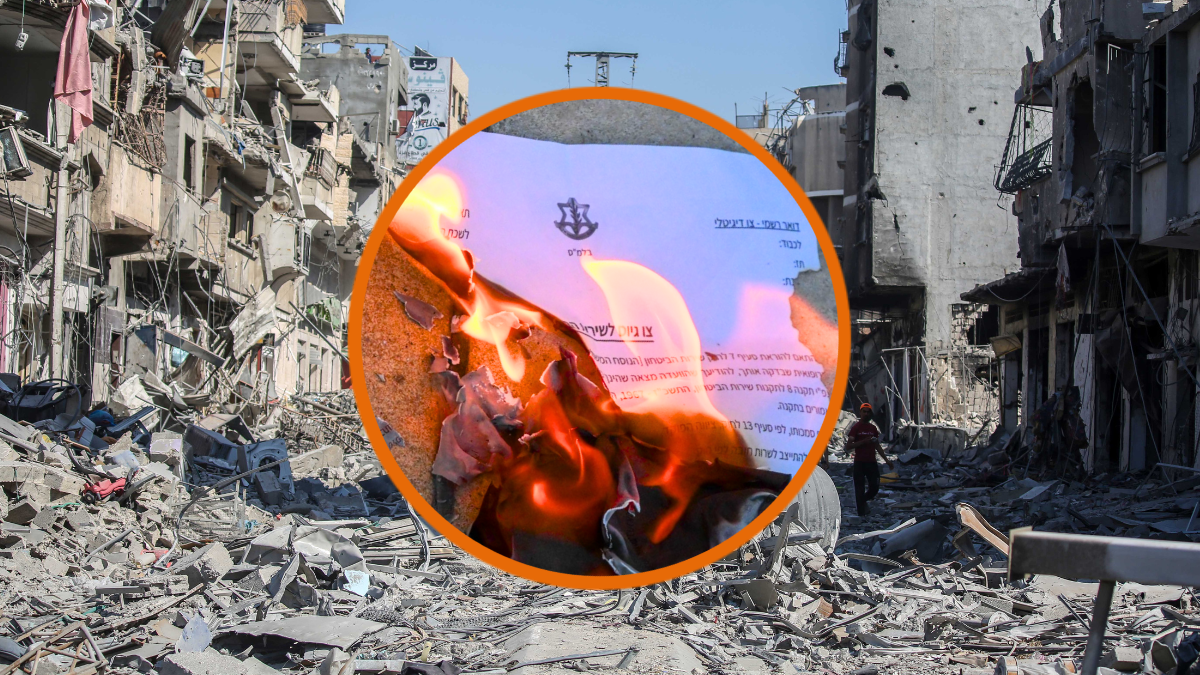
Despite what you might conclude from social media, Israel is divided when it comes to the ongoing genocide in Palestine. After all, it’s psychologically difficult to square that while you’re sunbathing on the beach in Tel Aviv, 50 miles to the south your military is executing children at a water distribution point.
Israel has mandatory military service in the IDF, with the Israeli teens being called up having to contend with their consciences as to what this means. Will they be directly implicated in crimes against humanity, have their morals warped by monstrous orders from their commanders, or have to spend the rest of their lives suffering nightmarish flashbacks to kids they killed?
So, it’s not surprising that some Israeli teens are saying a firm “no” to the IDF (or, as it’s commonly dubbed, the Israeli Occupying Force (IOF)). In protest yesterday in Tel Aviv, young Israelis marched holding signs saying “stop the genocide”, “free Palestine”, and “end the occupation”, concluding by collectively burning the draft orders calling them up for service:
a protest calling for refusal was held today in Tel Aviv by the organization of refusers "@Mesarvot_ ". The demonstrators chanted slogans against the IOF and in favor of refusal and reminded everyone that the IOF is a terrorist organization pic.twitter.com/nAU9b0G9FN
— Jess flom (@flom_jess) July 15, 2025
What happens if you refuse?
These teens have guts, as refusing to serve in the IDF on the grounds of moral disagreement almost always leads to imprisonment. Known as “refuseniks” in Israel, they’ll face repeated short-term sentences in military prisons, usually from 10-30 days at a time.
Right now in Tel Aviv: many teens are burning their draft orders.
— Itamar Greenberg | איתמר גרינברג (@itamar_green) July 15, 2025
We won’t take part in genocide. We won’t serve apartheid.
Resist. Refuse!@Mesarvot_ https://t.co/Drs8fY36My pic.twitter.com/FFo6sK8Sq5
The hope is that after one sentence, you’ll break and sign up, but the IDF will keep imprisoning you until you’re deemed a “persistent refuser” and discharged, though this can mean up to 200 days behind bars.
It doesn’t stop there. Refuseniks generally face social exclusion and mockery, dismissed as traitors or terrorist sympathizers. Future employment is tricky, with Israeli interviewers noting a lack of military service and choosing veteran candidates instead. Close family members can also face social exclusion, with the parents of a refusenik seen as having failed their country.
Ultimately, many refuseniks simply choose to emigrate – and who can blame them? But make no mistake, these are people who put their morals and beliefs above their personal well-being and freedom and they should be admired for it.
Who knows what each of us would do if called up for mandatory service in a genocide? Many would like to think they’d be out there with these teens also burning their draft orders, but doing that in the face of vast social pressure takes courage. Here’s hoping more Israelis follow in their brave example.







